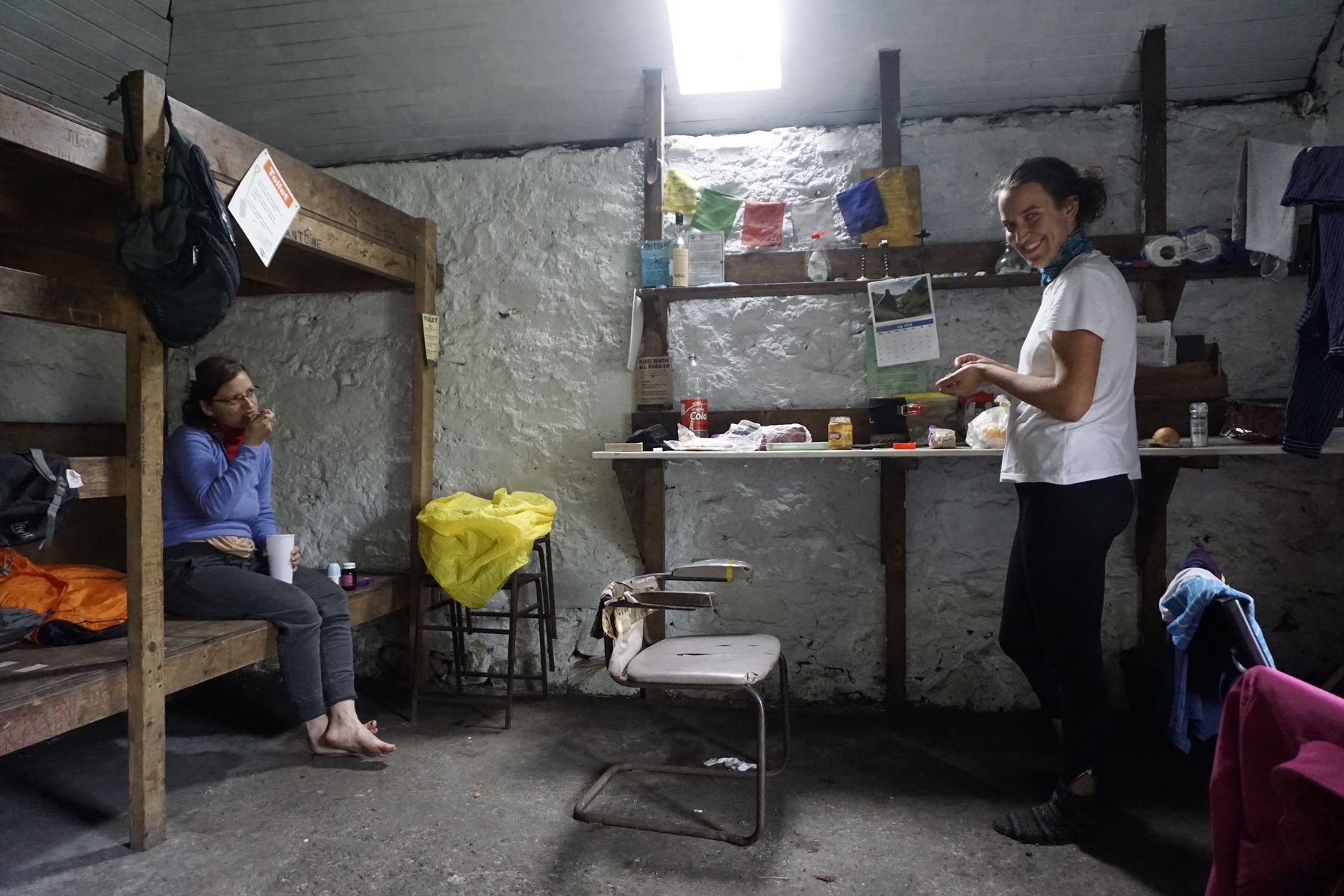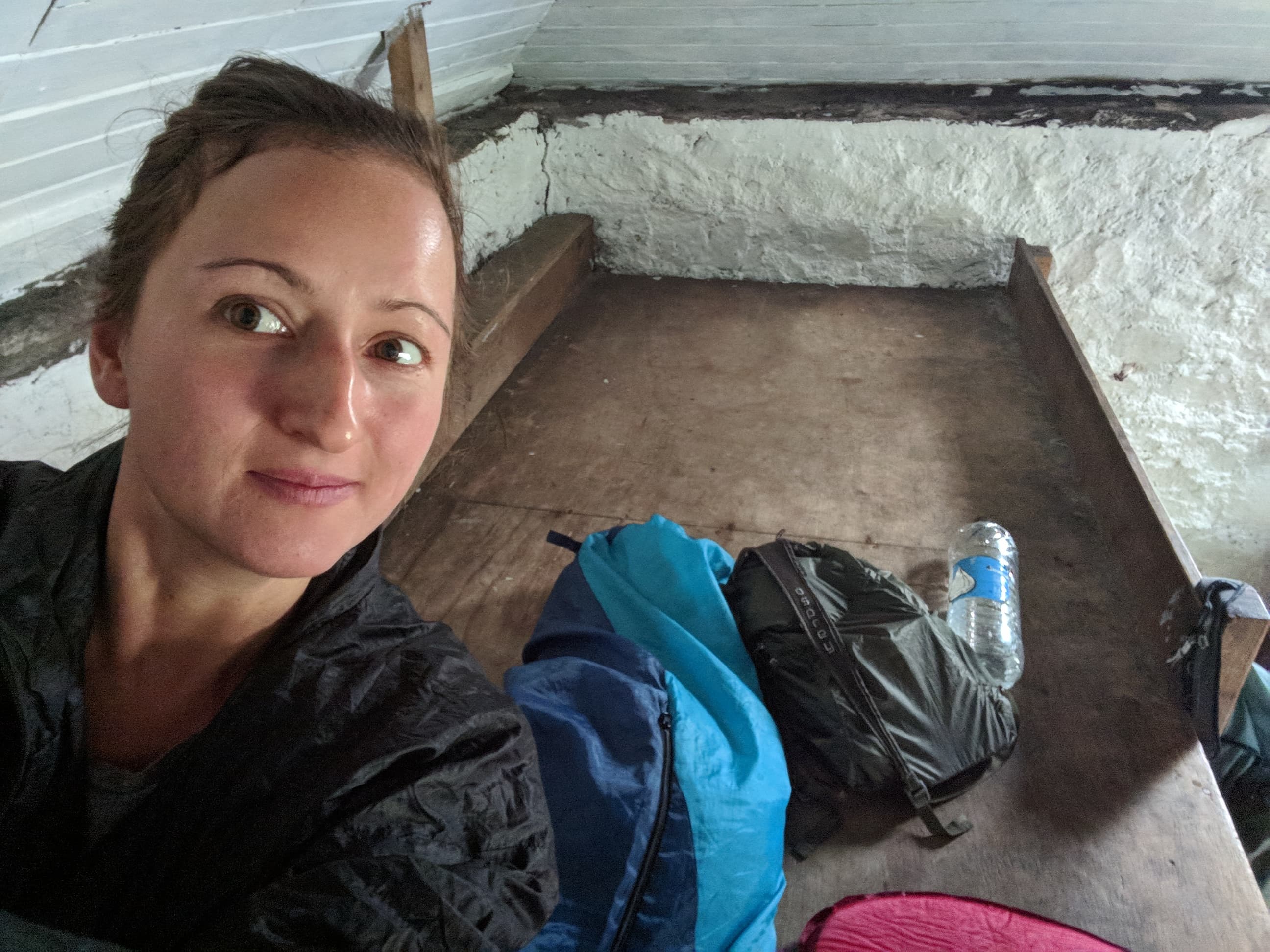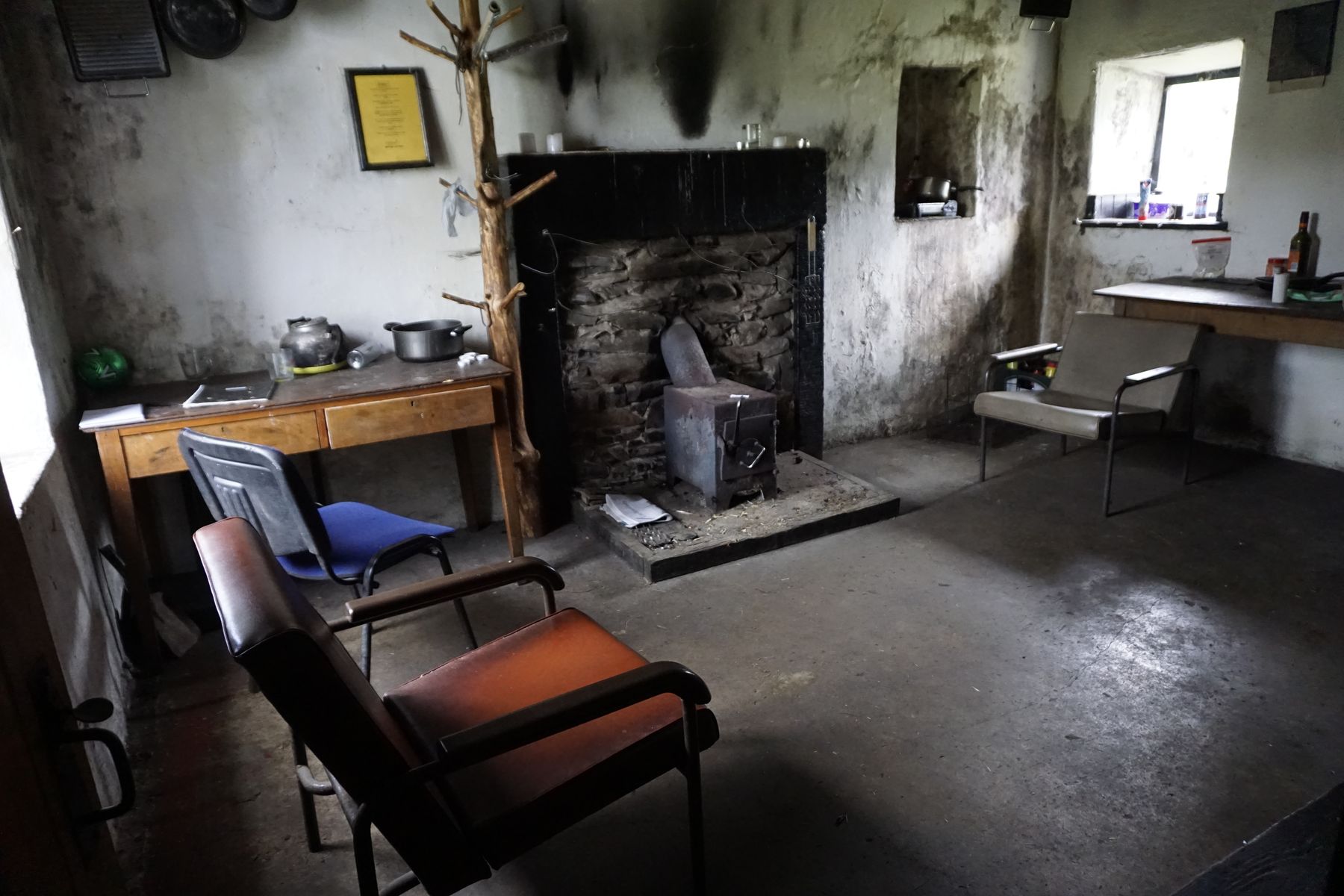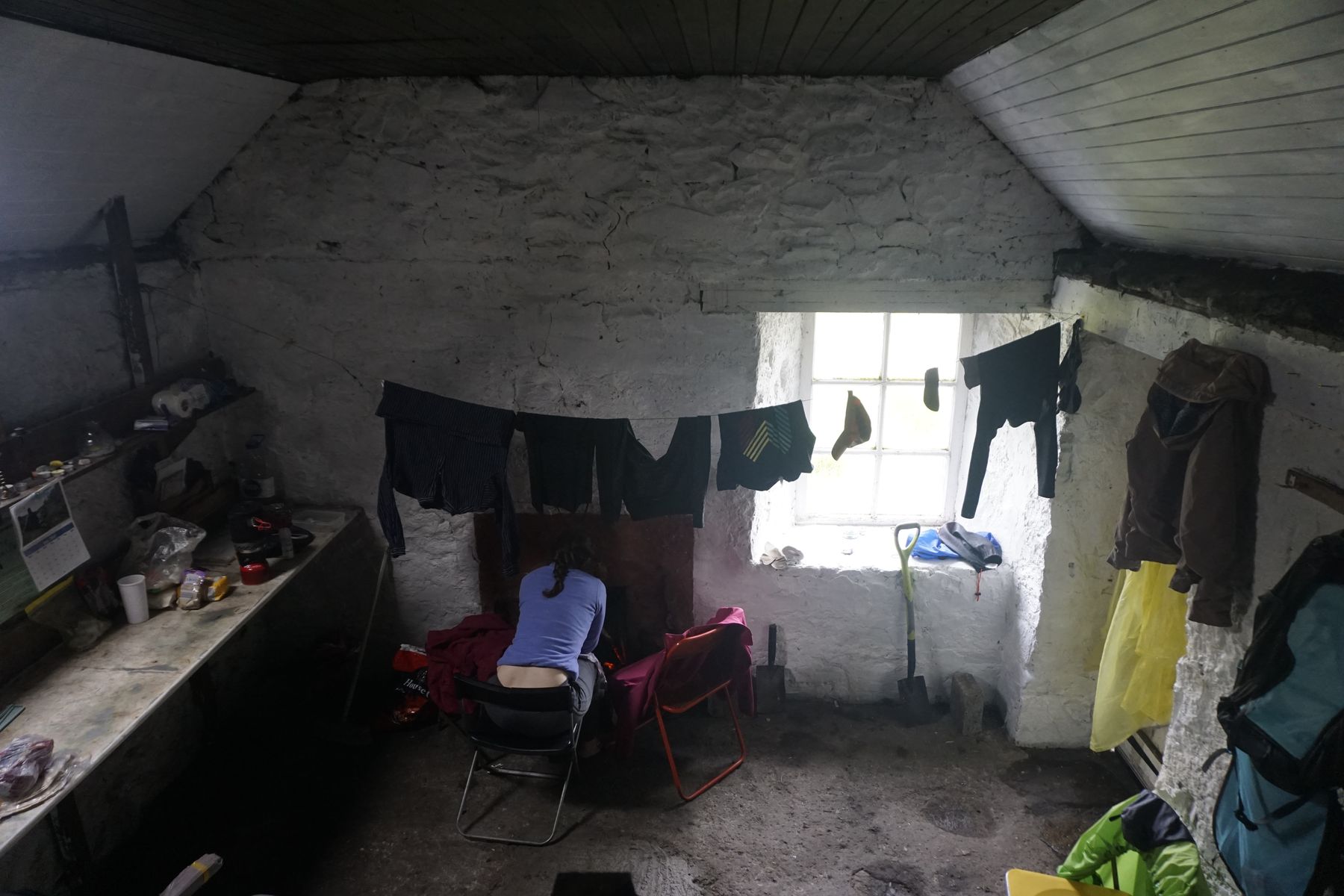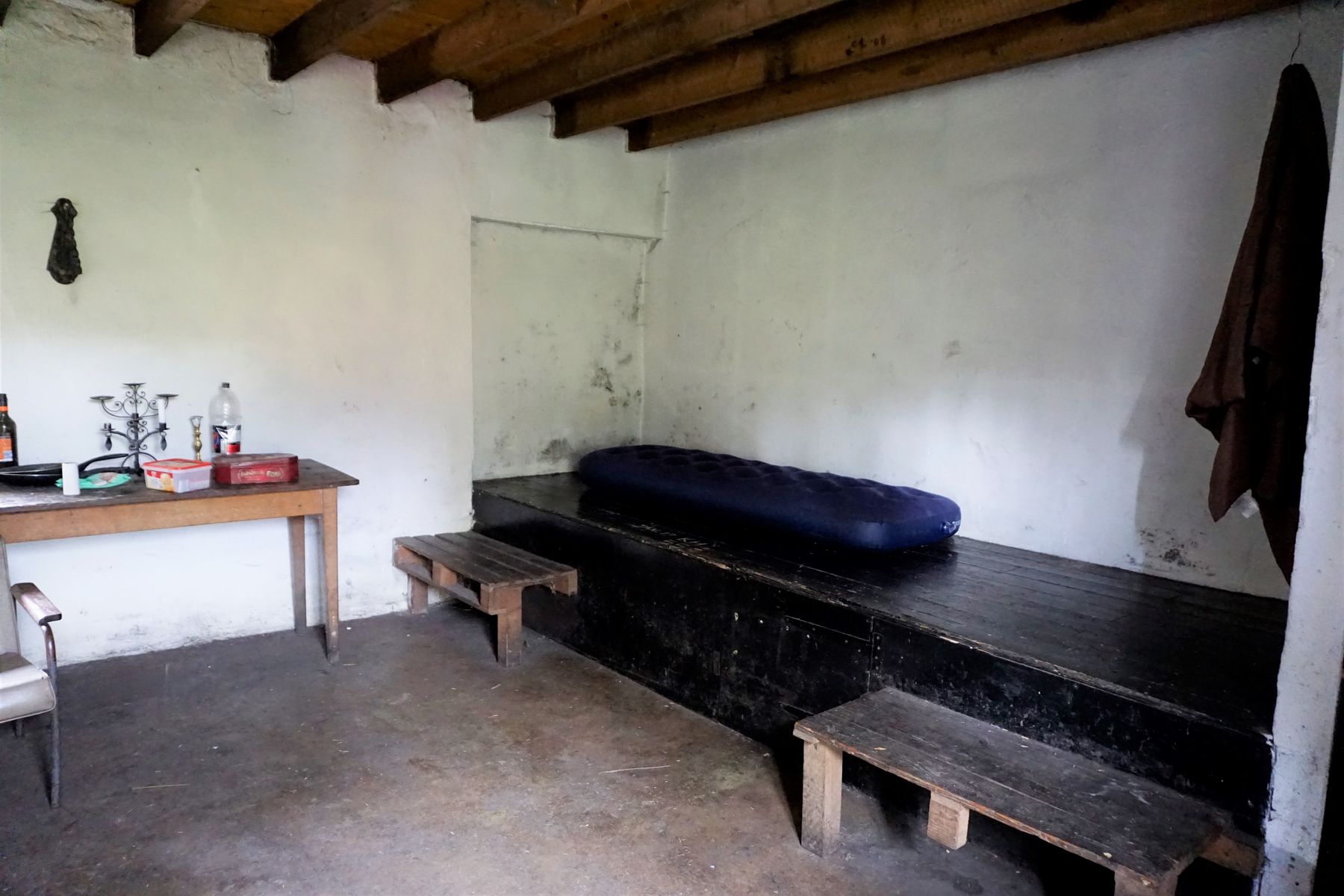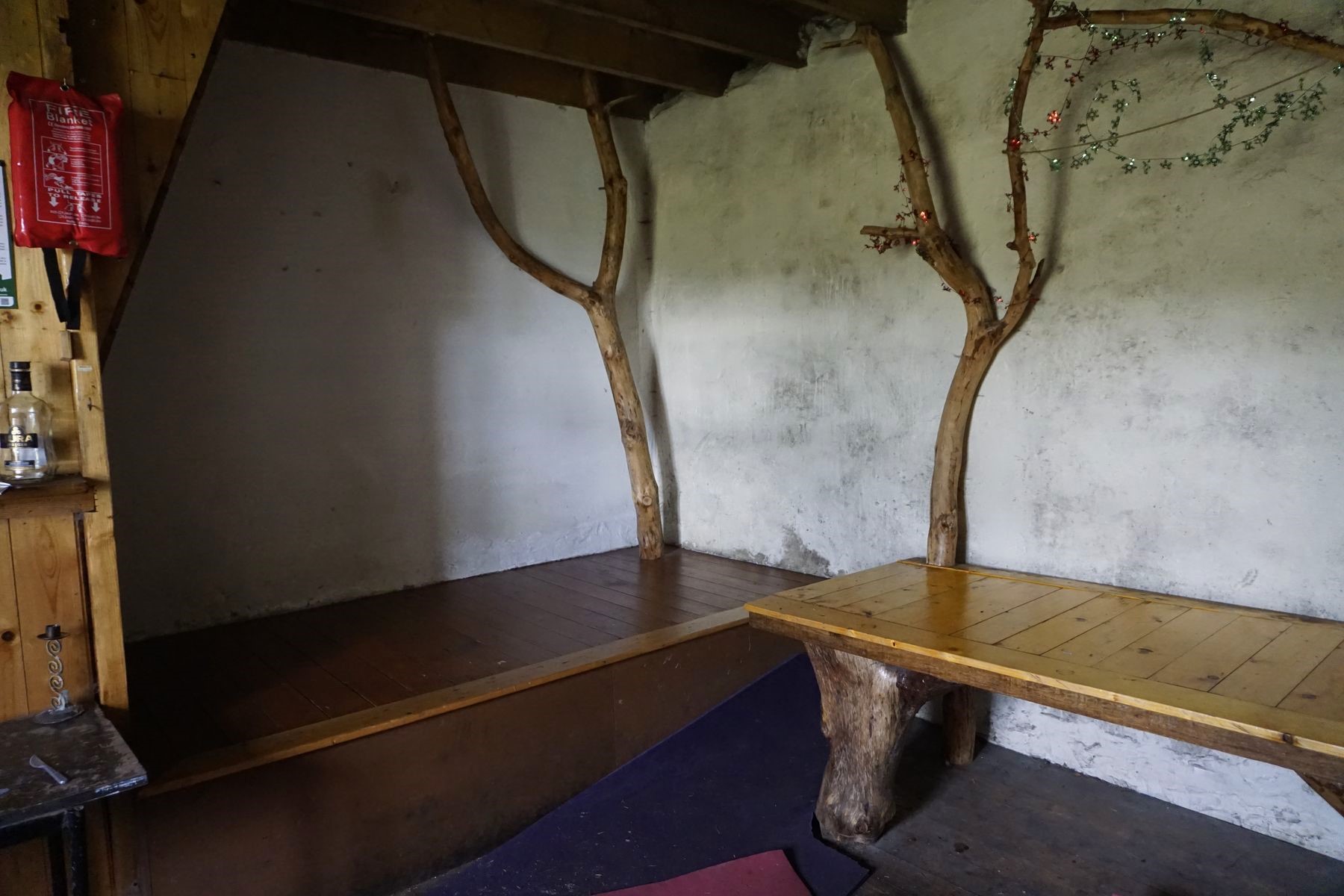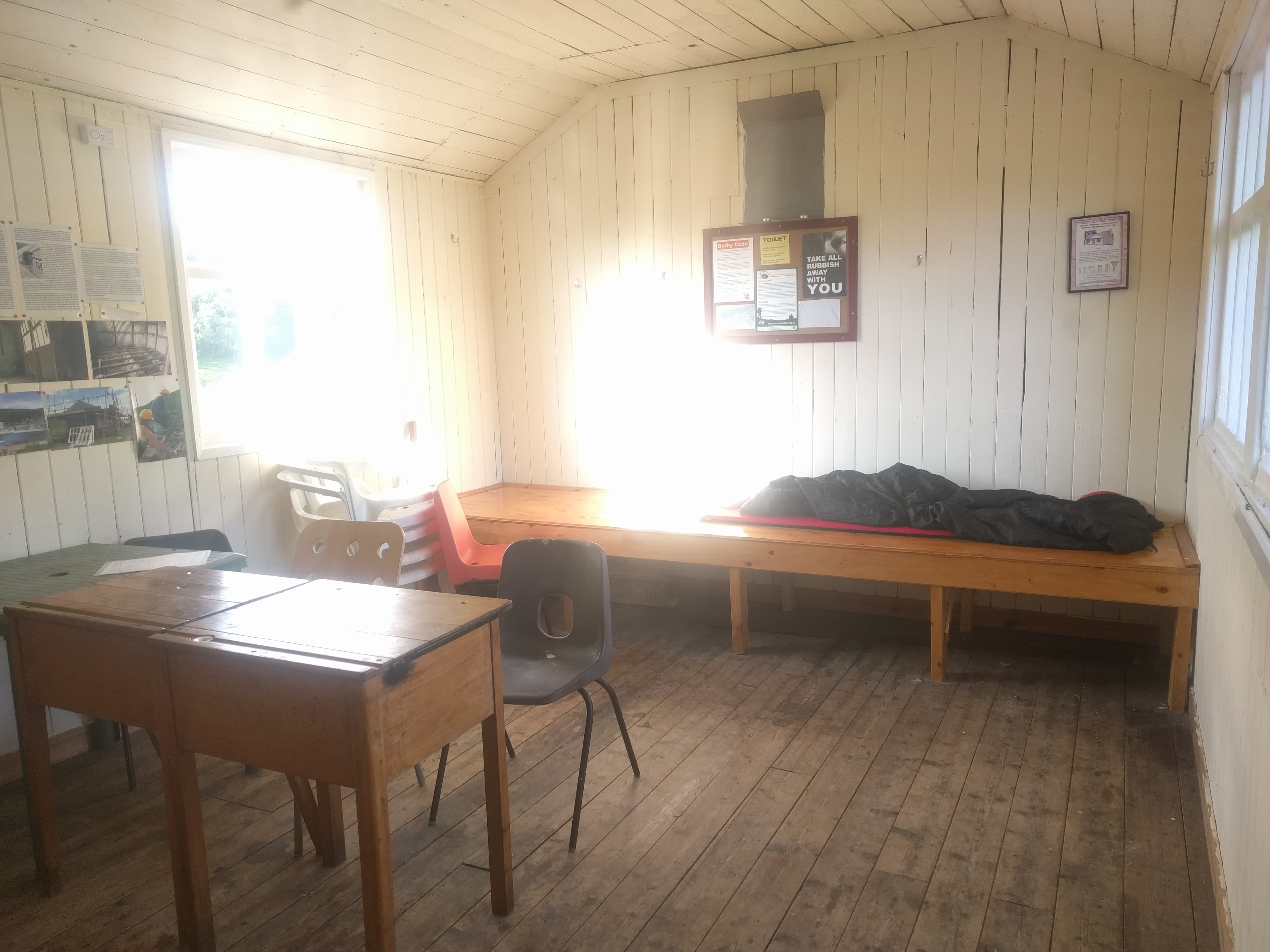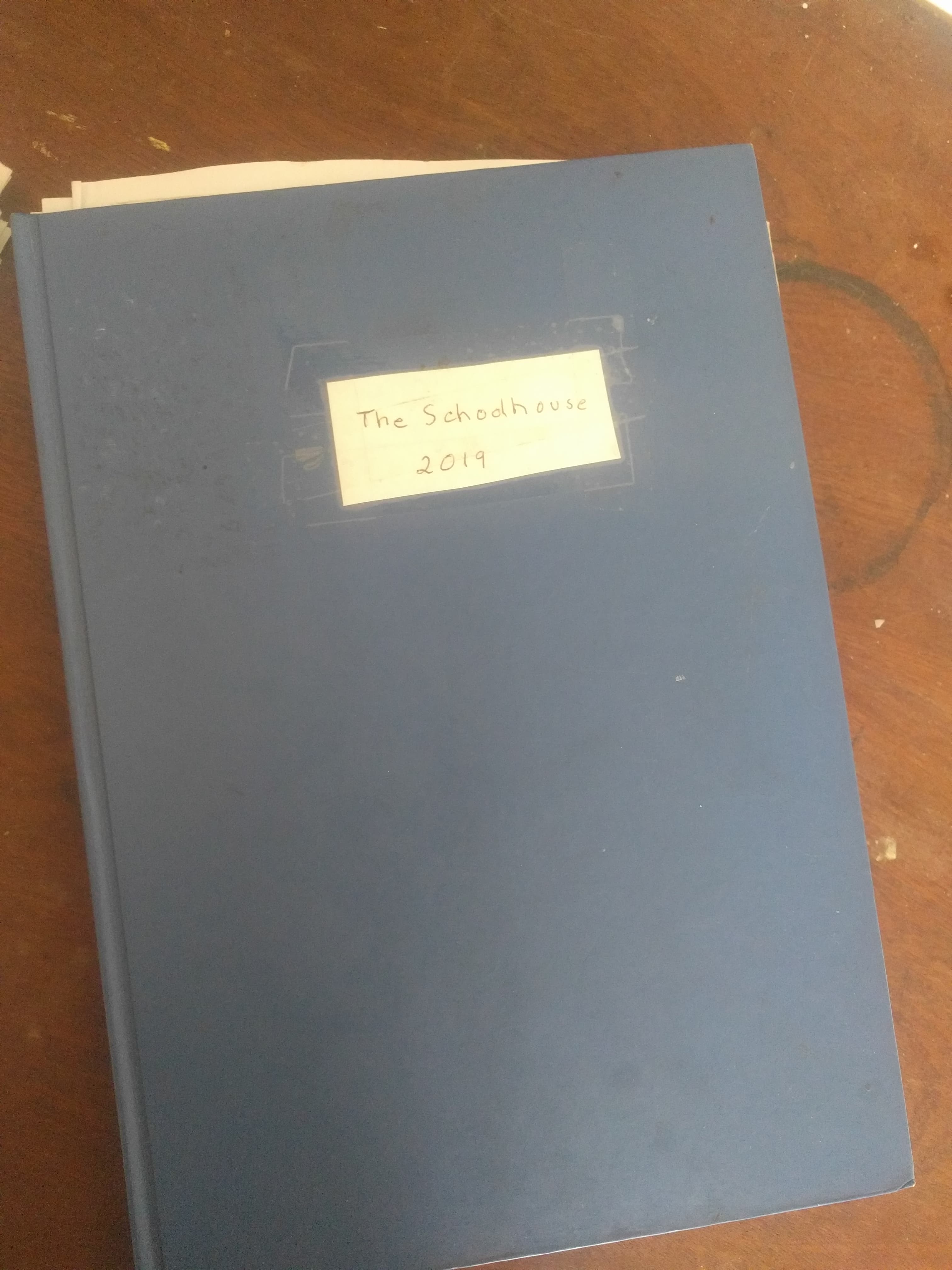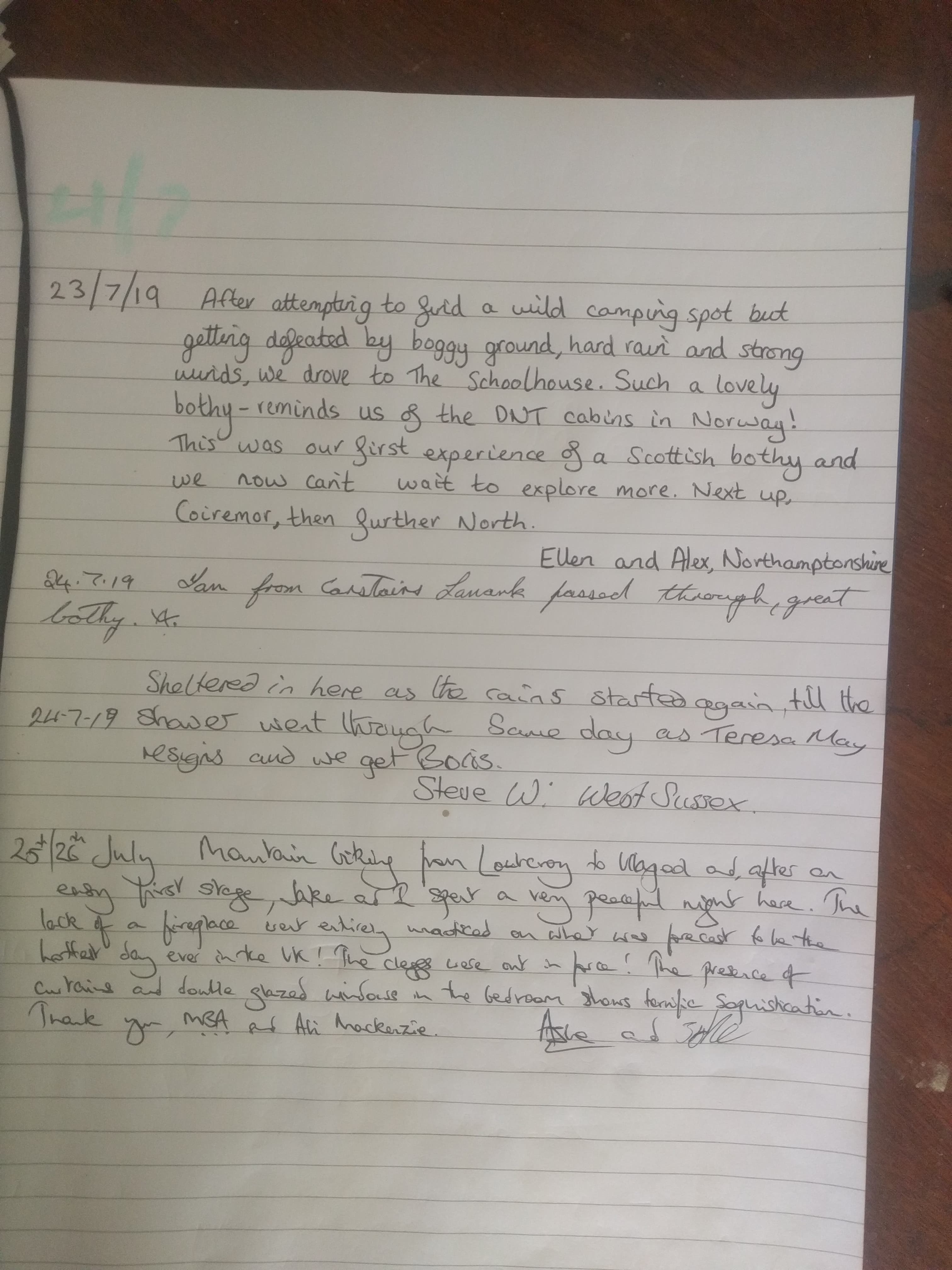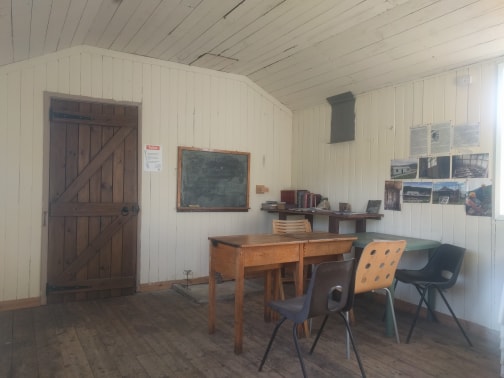Bothies: a trade-free shelter!
Ever heard of trade-free accommodation? Well here’s one example: UK mountain bothies!
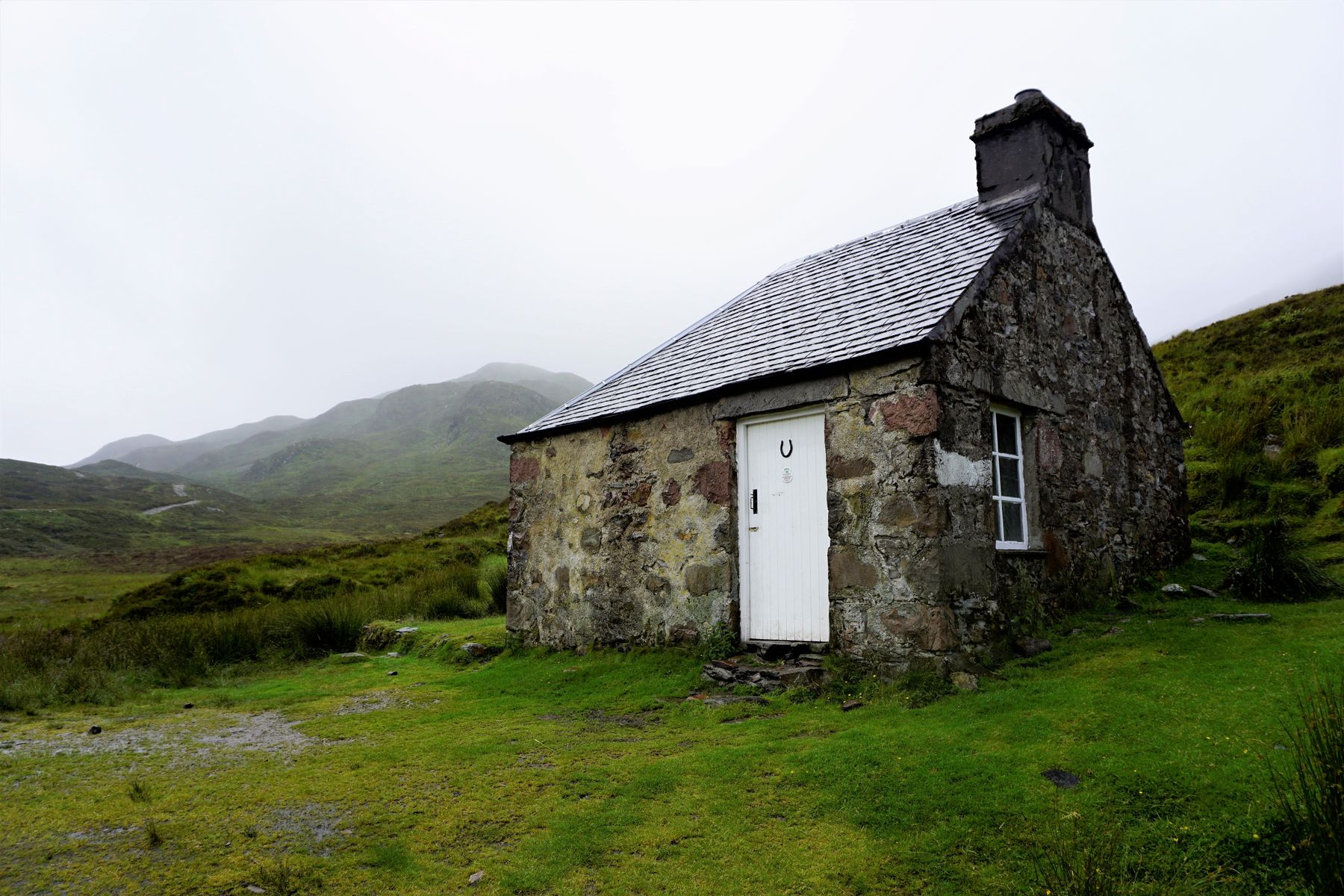
My friends and I recently took a trip to Scotland, where we spent several nights sleeping in mountain bothies. Bothies are remote buildings that have been renovated by the Mountain Bothy Association (MBA) and are open for those in need of shelter.
What?
If you hike or cycle to a bothy, you are welcome to open the door, step inside, and sleep in it. You don’t need to pay any money, sign any agreement, work on a farm, or trade anything for the use of this accommodation.
How does this work?
Most of the buildings are owned by a person who no longer has much use for the building and has agreed to allow the building to be used as a bothy. Two bothies are owned by the MBA itself. Maintenance work is done by volunteers and financed by donations and voluntary membership subscriptions (you do not have to be a member in order to use the bothies). This allows 100 or so bothies to be kept wind, water-tight and available to the public.
What are they like?
Most bothies do not have running water, beds, electricity, kitchens or toilets (but a shovel is always provided :)), so you should be prepared with your own camping gear when hiking to a bothy (bring your own sleeping pad, sleeping bag, camping stove, etc.); in other words, bothies are simple shelters- four walls and a dry place to sleep.
A bothy may not sound like much, but these four walls can be a life-saver for a lone hiker crossing Scotland in a brutal storm (which there seem to be a lot of!).
This trade-free shelter was extremely helpful and convenient for my friends and I when we traveled through Scotland. As we hiked, we encountered storms, were drenched with rain, at times we were attacked by swarms of midges, and other times we were cold and uncomfortable, but once we reached the bothies, we felt safe and cozy. We were able to warm up, hang up our wet clothes, escape the midges, change, cook food, and have a good night’s sleep. This can be very important as Scotland is prone to very wet and windy weather!
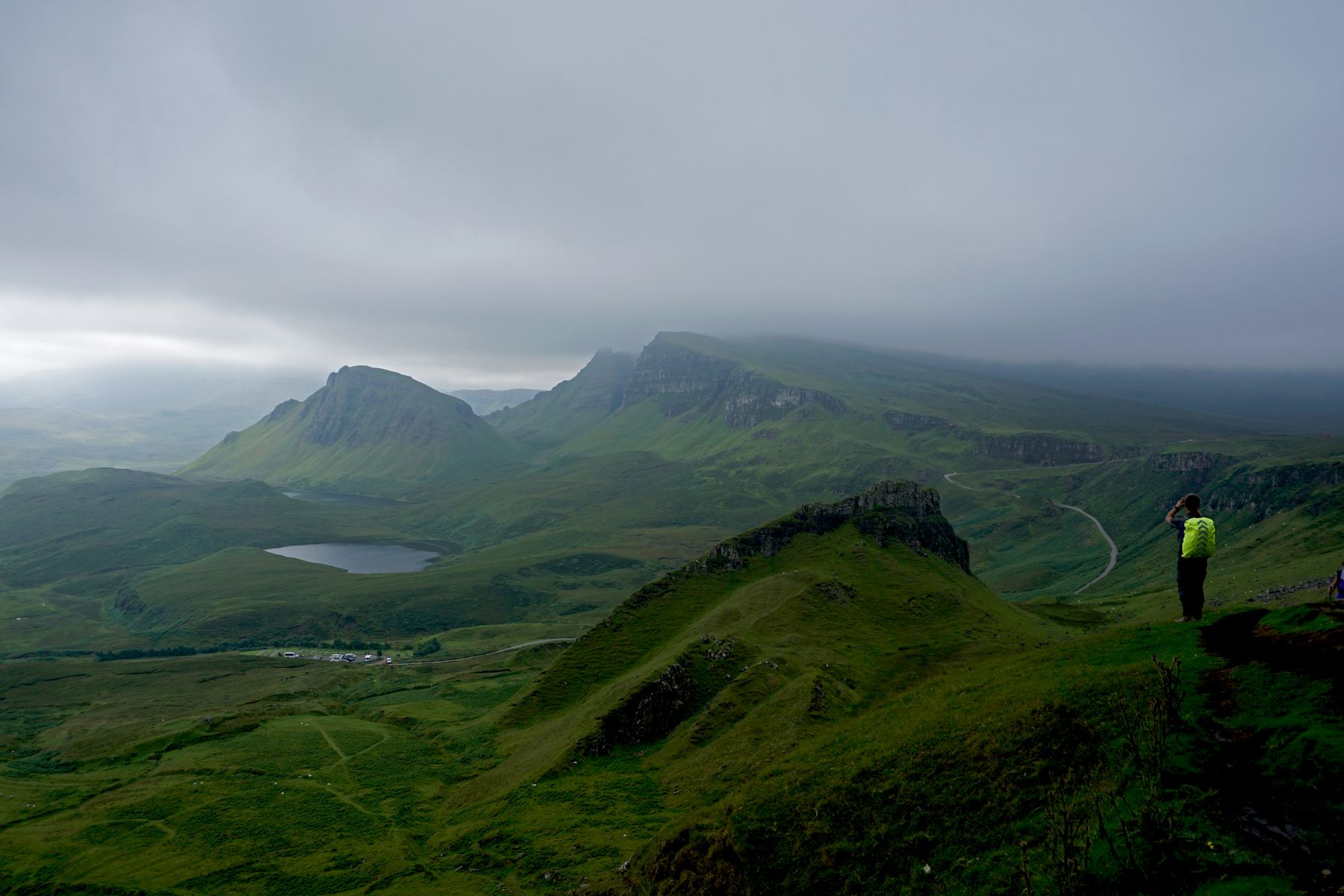
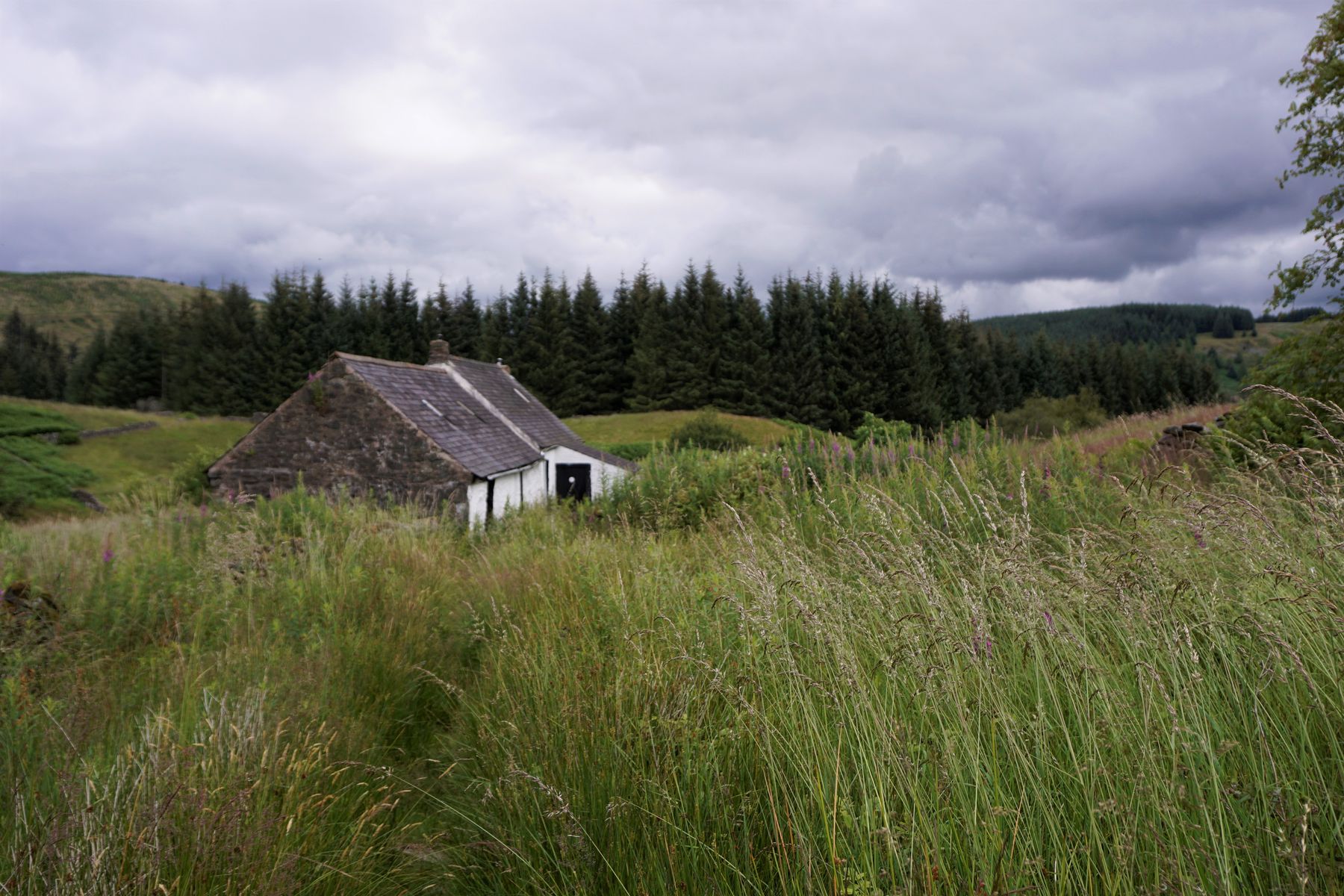
In the bothies, we met a number of other hikers who were all very friendly and happy to share not only the bothy space, but also some stories, information and even some tasty food.
What I love about trade-free things is not just the “free” aspect of them, but the way that people behave in such places. I could never expect this kind of kindness and openness from strangers in the lobby of a hotel, let alone, inside of a stranger’s hotel room :).
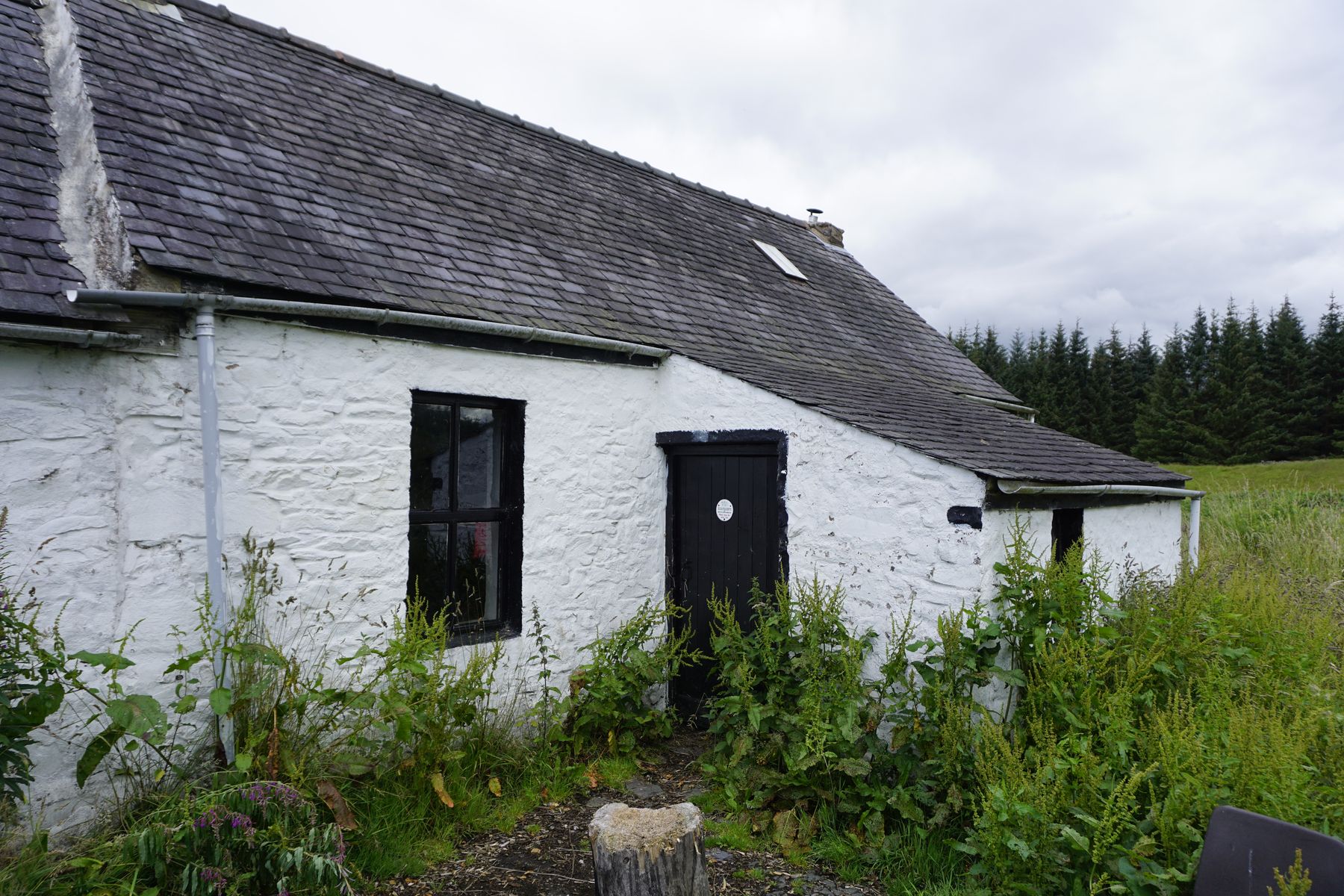
Some people have argued that “a bothy is not really trade-free because somebody else pays for it.”
-If you say this, then you don’t understand the “trade-free” concept.
The point of a trade-free ‘thing’ is that it is trade-free for the people using it.
In this case…
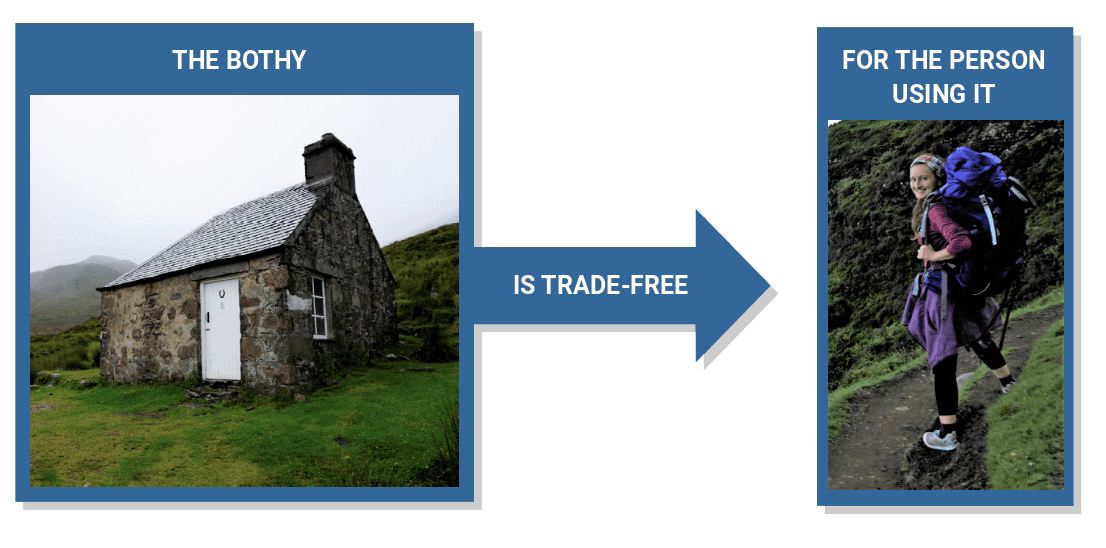
Of course, the bothy still needs resources to be built and maintained, so most-likely it is built and maintained using some kind of trades. That doesn’t mean that you need trade in order to build and maintain bothies, that just means that you need some resources to build and maintain bothies, and unfortunately, almost all resources are controlled by some kind of trade (usually money). As a result, it is very difficult to make a trade-free ‘thing’ out of 100% trade-free resources. But I don’t think we need to stress about this too much because we have to start somewhere!
Let’s compare this dilemma to waste and recycling.
Let’s say a group of people are concerned about the build up of waste on our planet and they want to do something about this. So they say,
“let’s make musical instruments out of recycled material! This won’t solve the entire problem, but if we at least start making some cool instruments out of plastic bottles, maybe this idea will catch on and more people will start making more stuff out of recycled material, and maybe, if this is practiced by many and for long enough, this can solve our waste problem, or at least make it better than what it is today. But in order to do this, we can’t just make cool recycled instruments, we also need to scream about the problem! We’ll make instruments out of recycled material and tell people that waste and pollution is a problem!”
-So these people are alleviating the waste problem through creating something, but more importantly, they’re spreading awareness (education) through their project, in order to attempt to influence others to also work on alleviating the problem. Culture and society change gradually, through problem solving.
Now let’s say someone comes along and says that they’re not really making musical instruments out of recycled material because the tools that they’re using to create these instruments are not made from recycled material.
Is that really true?
No! Fuck no!
A sugar-free donut is sugar free because it doesn’t have sugar in it, therefore, the person eating the donut will not eat sugar. It doesn’t matter if there’s sugar in the oven it was baked in or if it was once coated in sugar, so long as the finished product is sugar-free.
Musical instruments made from recycled material are still made from recycled material regardless of what tools were used to make them.
Open source software doesn’t have to be created using open-source software for it to be open-source. If it’s made on a proprietary operating system, that doesn’t stop it from being open-source.
A trade-free shelter is a trade-free shelter because the people using it don’t have to trade anything to use it. It’s still a trade-free shelter regardless of what tools or trades were involved in building and maintaining it.
Get it?
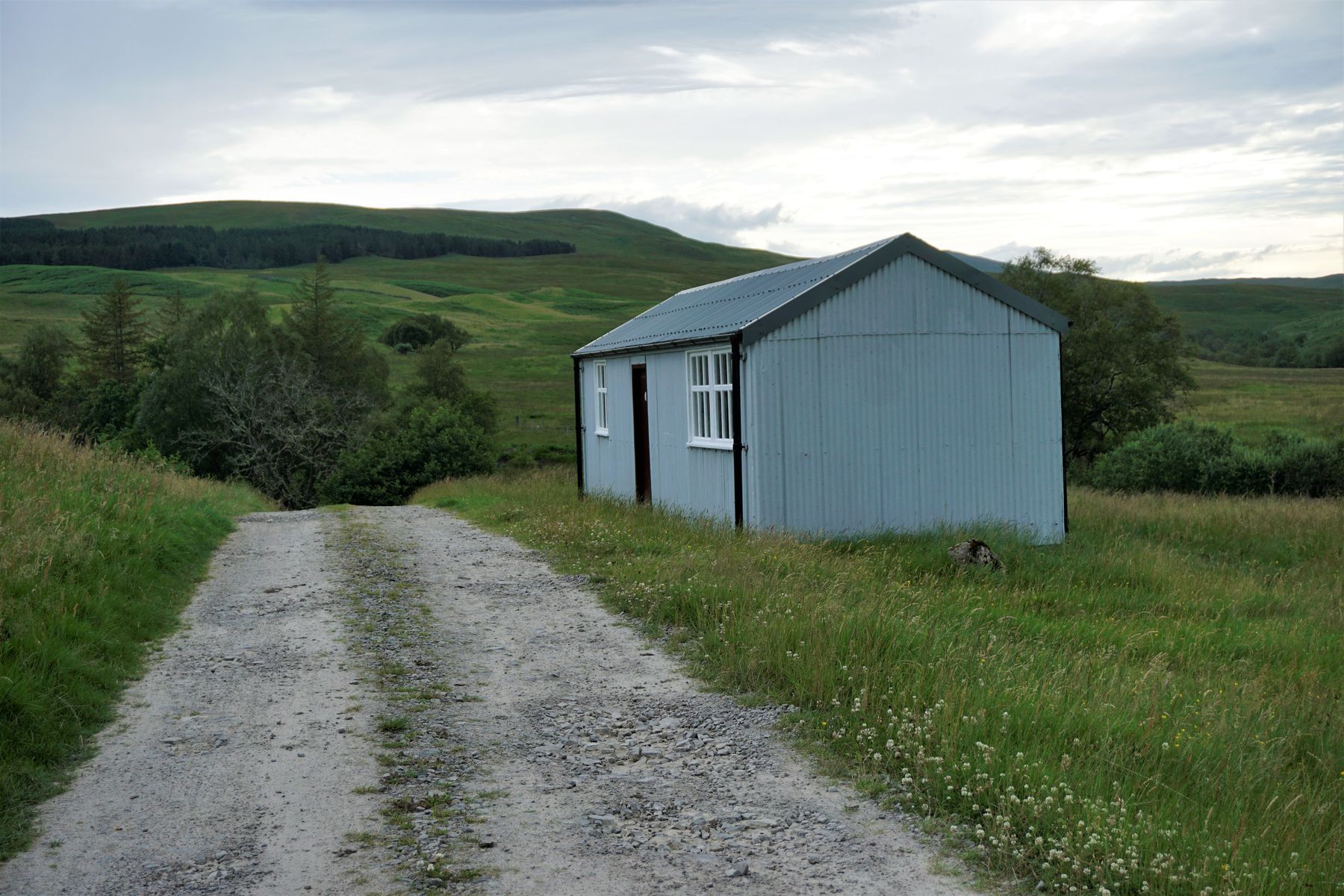
One more thing!
I know guys… mountain bothies are not going to save the world :D
These kinds of trade-free wilderness huts can actually be found in many different countries around the world, they’ve been around for a while, and they’re not all that special.
The Mountain Bothy Association has probably never heard of the trade-free movement, doesn’t label itself as trade-free, and probably doesn’t talk about for-profit remote shelter (or for-profit anything) as a problem.
Nevertheless, they still do a great deed for hikers and cyclists in need of shelter and they are a real example of trade-free accommodation that exists even in this profit-driven society.
Read more about the MBA here.
